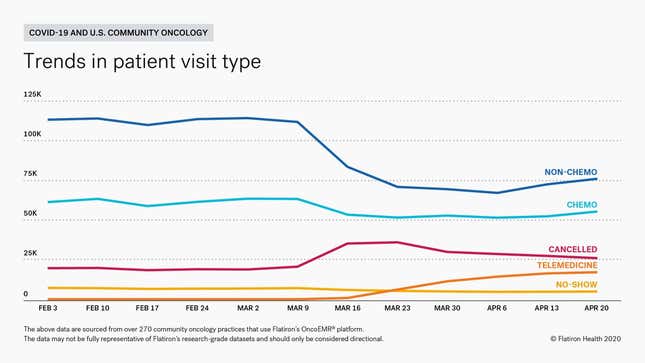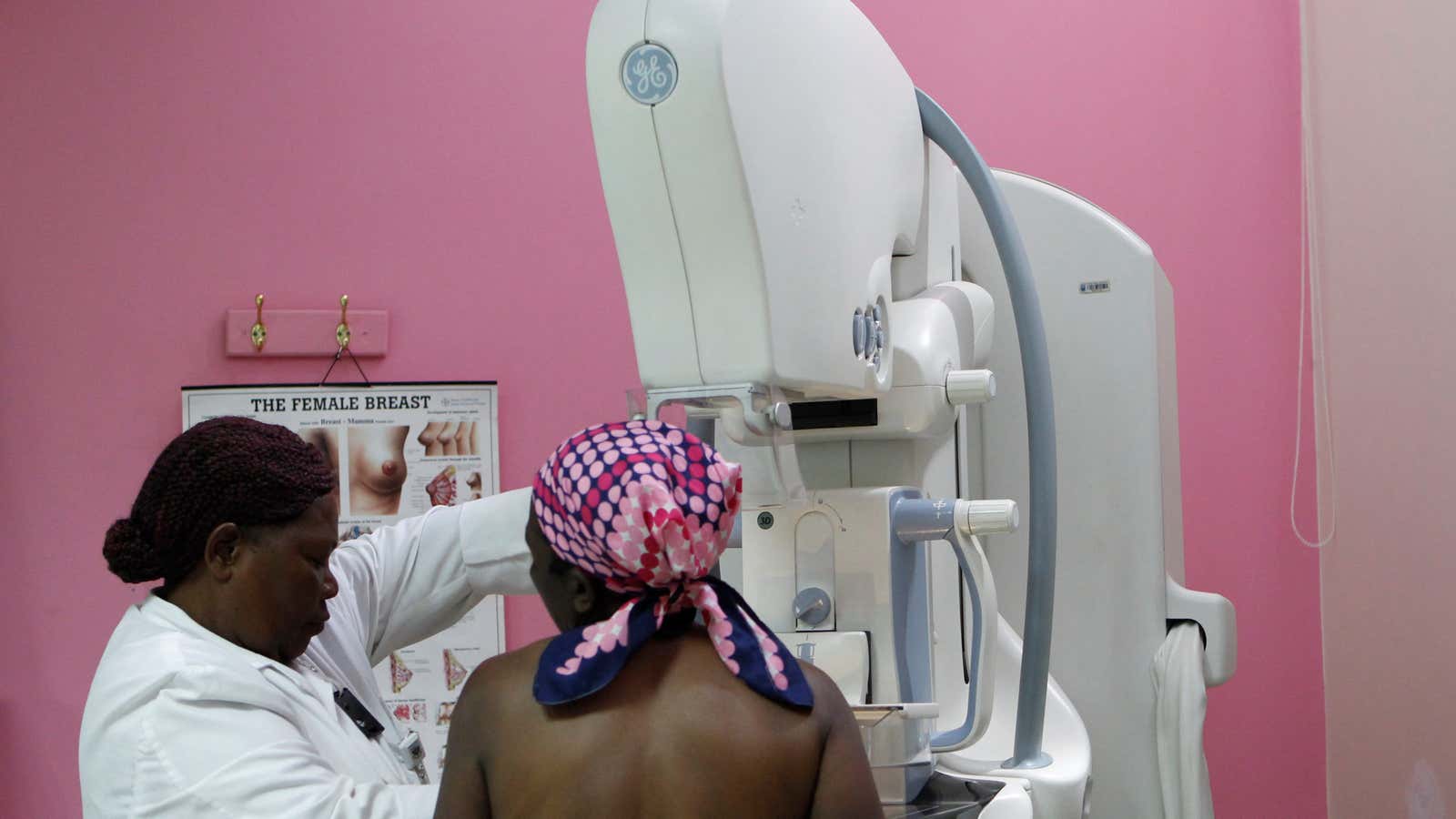Non-essential doctor’s appointments are off the table as patients shelter at home to prevent the spread of coronavirus. Colonoscopies, mammograms, and screenings that diagnose cancer have fallen dramatically, as have other cancer-related appointments.
Data from 270 community oncology practices in the United States show that visits from new patients have fallen nearly 40%. These appointments went from 8,000 in early February to less than 5,000 towards the end of April, according to data from Flatiron Health, an oncology-focused electronic health records company.

Both chemotherapy and non-chemotherapy appointments from existing patients also fell across the US. The Northeast saw the sharpest decline, with a 17% drop in chemotherapy visits and 37% drop in non-chemotherapy visits.
The findings mirror research from electronic medical records vendor Epic, which found that screenings for breast and cervical cancer dropped by 94% in March compared to the mean between January 2017 and January 2019. Colon cancer screenings fell by 86% over the same period, according to Epic’s data from 2.7 million patients across 23 states.
Oncology practices see plenty of patients with benign conditions, according to Bobby Green, chief medical officer and senior vice president of clinical oncology at Flatiron. The fall in appointments is less of a concern for those groups. “But, invariably, there will be some patients with new cancer diagnoses,” he told The Cancer Letter. As patients miss out on screenings, some cancer diagnoses will inevitably be missed and patients won’t get necessary treatment.
It’s uncertain appointments will pick back up once lockdown conditions are relaxed. Carl Dvorak, president of Epic, told STAT he expects patients to continue to be reluctant to see their doctor. “Truthfully, it doesn’t take much to talk a person out of going in for a colonoscopy,” he said.
